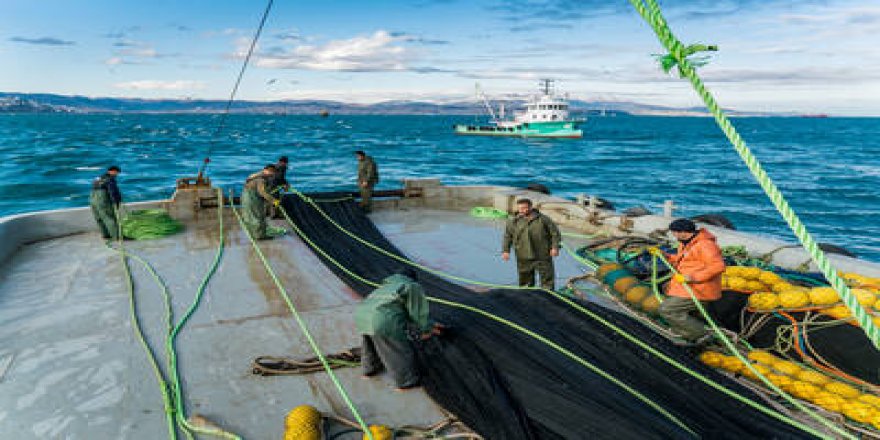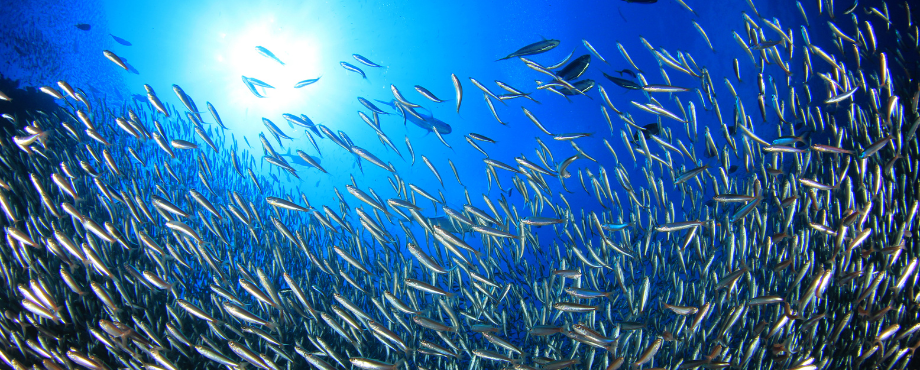
GFCM unveils MedSea4Fish, an ambitious fisheries programme to continue turning the corner on overexploitation in Mediterranean Sea
The General Fisheries Commission for the Mediterranean (GFCM) of the Food and Agriculture Organization of the United Nations (FAO) today unveiled MedSea4Fish – an ambitious long-term programme that will serve as a blueprint for making fisheries in the Med
“The FAO Blue Transformation vision aims to expand sustainable aquaculture, improve fisheries management and develop fish value chains to ensure the sector contributes more effectively to food security and nutrition, as well as livelihoods. MedSea4Fish is well aligned to this initiative, and will contribute to our desire to have all fishery resources under effective management,” said Manuel Barange, Director of FAO’s Fisheries and Aquaculture Division and GFCM acting Executive Secretary.
“The European Commission is a staunch supporter of the MedSea4Fish programme. Critical fish stock levels have improved in recent years, offering a glimmer of hope: if we bolster our efforts, we can manage the Mediterranean precious marine resources better. We have no doubt that MedSea4Fish will be vital for reaching sustainable fisheries in the region,” said Valerie Lainé, Head of the European Union Delegation to the GFCM.

Why should we do more for the Mediterranean’s marine resources?
Mediterranean fisheries have been under great pressure due to increased pollution from human activities, habitat degradation, the introduction of non-indigenous species, overfishing and climate change.
But after decades of worrisome trends, the latest data has raised hopes for the recovery of the region’s vital fish stocks. According to the GFCM report The State of Mediterranean and Black Sea Fisheries 2020, while 75 percent of fish stocks remain subject to overfishing, this percentage fell by more than 10 percent between 2014 and 2018. Exploitation ratios are down by a similar proportion.
GFCM countries are doubling down on their efforts to continue turning the tide against overfishing, and as part of these efforts, have recently adopted a significant number of fishery-related decisions and management plans. MedSea4Fish will support countries to put these decisions and plans into practice.
MedSea4Fish at a glance
MedSea4Fish builds on lessons learnt by the GFCM in providing technical assistance and organizing capacity-building activities over the last decade as well as on the BlackSea4Fish project. It is guided by the GFCM 2030 Strategy and GFCM’s over 80 decisions on fisheries management.
The programme will be shaped by the fishery priorities of the GFCM countries.
It will provide an avenue to identify and promote best practices in the region, enabling countries to share their expertise and become go-to places for best practices on aspects ranging from collecting basic data on fisheries to managing bycatch or facing climate change.
Capacity development will be at the core of MedSea4Fish. Specifically, MedSea4Fish will focus on improving monitoring of fisheries and ecosystems, training, and enhancing infrastructures.
“Monitoring and training are not new to the GFCM, but MedSea4Fish is taking these to the next level. We will pull out all the stops so that monitoring is done in an integrated way. For example, integrated surveys that provide information on the status of resources and vulnerable species, but also marine litter, non-indigenous species and climate change. Training will also expand,” said Miguel Bernal, GFCM Senior Fishery Officer.
“The infrastructure component is new and it comes in response to countries’ needs. Improving infrastructure can mean different things – from providing standard nets for scientific surveys, upgrading port facilities, testing or using more selective fishing gear or scaling up the use of new technologies. Decisions on infrastructure will consider the long-term and sustainable use of the equipment, goods or site being improved,” added Bernal.
Who will benefit?
Fishers and fish workers, scientists and experts, and representatives of government and national fishery research institutes will be the main groups to benefit from MedSea4Fish.
Fishers – especially small-scale fishers – and fish workers play a key role in supporting coastal communities’ livelihoods, ensuring food security and nutrition, and boosting local economies.
It is crucial to invest in fishers and fish workers, furthering their skills and knowledge so they can share good practices, contribute to sustainability and participate in decisions that affect them.
Who supports MedSea4Fish?
MedSea4Fish is envisaged as a multidonor and multipartner initiative.
The first phase of MedSea4Fish is possible thanks to the support of the European Commission, with funding needs secured for the first two years.
It was widely welcomed today by representatives of GFCM countries and partners who showed commitment to make the programme a success.
The GFCM has made great strides in rallying support towards more sustainable fisheries, thanks to the increasing commitment of countries, enhanced decision-making and more than a ten-fold increase in voluntary contributions over the last eight years – a sign of growing recognition of GFCM’s achievements and determination to better protect the Mediterranean’s vital marine resources and the hundreds of thousands of people who depend on them.





YORUM KAT